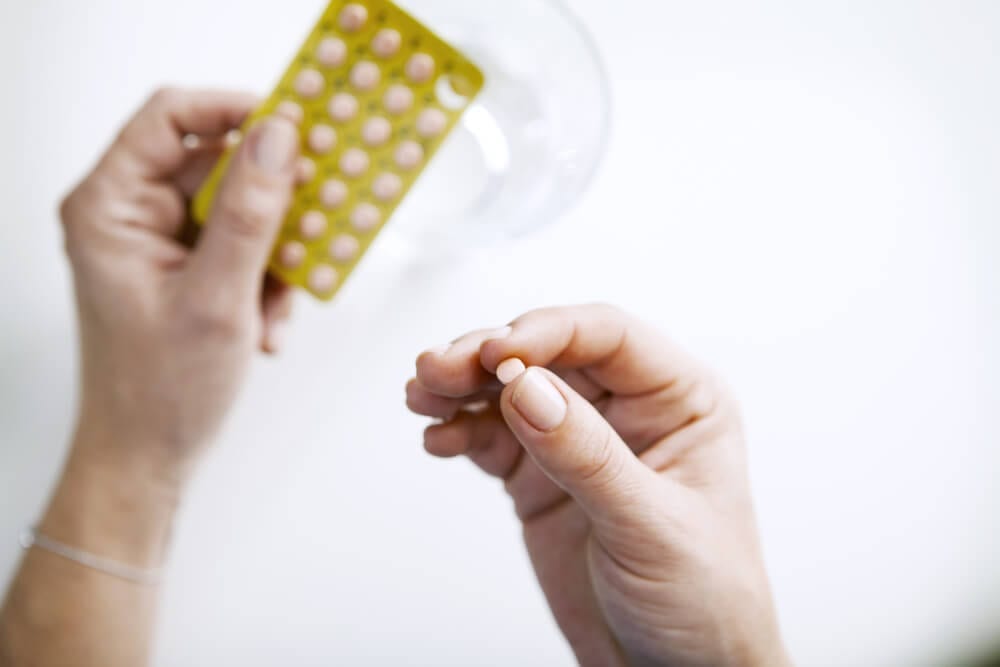Hormone therapy, which is also known as hormone replacement therapy, has been used for decades by aging women to reduce the chances of developing heart disease and brittle bones while also combating common symptoms of menopause (such as mood swings, vaginal dryness, and hot flashes). Does your practice have any experience in delivering hormone therapy? If so, you are certainly well-aware of the many potential complications that can come with this type of treatment. The most common concerns (initially cited by the Women’s Health Initiative in 2002) of long-term traditional hormone therapy include increased risk for blood clots, heart attacks, strokes, and various types of cancers.
So, what is the best treatment option available for women suffering from menopause? Most studies indicate that a solution known as advanced bioidentical hormone therapy may be the most effective choice. Let’s take some time here to look more closely at this particular hormonal treatment alternative and how it can help your patients live with far fewer complications!
What Is Bioidentical Hormone Replacement Therapy?
Bioidentical hormone replacement therapy (which is also commonly abbreviated as BHRT treatment) is the most currently-used alternative treatment for conventional hormone therapy. Traditional hormone treatments use synthetic or animal-derived hormones that are quite biochemically different from the hormones a woman’s body naturally produces. This difference can cause the body to react in an unnatural manner when these types of compounds are introduced.
For example, a conventional estrogen replacement known as Premarin is derived from the urine of pregnant horses. However, when used by women looking to enhance their own estrogen levels, Premarin can bind onto their estrogen receptors extremely tightly and cause them to be more reactive than usual. Unfortunately, these type of unplanned interactions can cause a myriad of different health problems.
In comparison, the bioidentical hormones used in BHRT are chemically equivalent to the ones that women produce on their own. This factor allows bioidentical hormones to interact with our bodies in the same way naturally produced hormones do.
How Are Bioidentical Hormones Created?
In essence, there are two different ways bioidentical hormones are manufactured:
1) They can be made on a case-by-case basis and customized specifically for a patient’s needs in a special facility known as a compounding pharmacy. Keep in mind that these types of hormones are not regulated by the US Food and Drug Administration (also known as the FDA).
2) They can also be pre-made by major pharmaceutical companies and distributed as a brand name medication. In comparison, these hormones are actually approved by the FDA.
It should also be noted that the building blocks of these type of hormones can be derived from a variety of sources that include animal or plant products. On top of this, either synthetic, animal-derived, or bioidentical hormones are available in a variety of different forms that include gels, pills, topical patches, lotions, and vaginal rings.
What Are Some Commonly Used Bioidentical Hormones?
Bioidentical hormones that are quite commonplace include:
1) Estradiol acetate (which is used in vaginal ring devices such as the Femring)
2) Micronized progesterone USP (used to formulate Prochieve and Prometrium)
3) Estradiol hemihydrate (used to create Vagifem)
4) 17 types of beta-estradiols (used in the medications Estring, Estradiol, and Estrace)
Which Symptoms of Menopause Can Bioidentical Hormone Replacement Therapy Help Ease?
These types of hormones have been shown to be quite effective at treating various perimenopause symptoms in women. It should be clarified that the troublesome symptoms that women describe as menopause are actually symptoms of perimenopause. Menopause describes the period of time that a woman ceases to have periods every month. In contrast, perimenopause describes the time period that leads up to menopause when the ovaries begin to produce lower levels of estrogen.
The potential benefits of using bioidentical hormones for perimenopause include:
1) Increased libido and sex drive
2) Reduced hot flashes
3) Reduced fatigue
4) Reduced thinning of the hair
5) Improved sleep cycles
6) Reduced bloating
7) Improved ability of the skin to stay moisturized
8) Enhanced mental clarity and thinking
What Are the Pros and Cons of Hormone Therapy?
In general, it is always a good idea for people (especially women) to be wary of engaging in hormone therapy due to the possibility of health concerns resulting from the use of synthetic or animal-derived hormones. Luckily, bioidentical hormones that are derived from natural compounds don’t seem to cause the same issues. As a matter of fact, research studies indicate that they offer our bodies a variety of benefits.
Therefore, there is no need for your female patients that are going through perimenopause to suffer from the troublesome symptoms without using any type of hormones. Some of the pros that bioidentical hormones can provide the female body include:
1) Reduced bloating
2) Reduced bleeding
3) A decreased risk of a variety of cancers (namely breast and uterine cancers)
4) Enhanced bone density
5) Improved sexual and urinary system health
6) A variety of benefits to overall cardiovascular health such as:
- Reducing the risk of atherosclerosis (hardening of the arteries)
- Reducing the risk of developing blood clots
- Helping to maintain ideal HDL cholesterol levels
The cons of bioidentical hormones are similar to that of traditional hormones though they usually occur far less frequently or with less intensity. They include:
1) Increased risk of blood clots
2) Increased risk of heart attacks and/or strokes
3) Potential development of cancers
4) Increased risk of gallbladder disease

What Are Other Healthy Alternatives to Hormone Replacement Therapy?
There are a number of patients that want to try some homeopathic lifestyle changes rather than risk potential complications with hormone treatments. Some effective measures include:
1) Eating a more healthy and balanced diet
2) Taking nutritional supplements
3) Increasing fitness levels with additional exercise
4) Attempting to reduce overall stress and anxiety
How Much Does the Typical Bioidentical Hormone Replacement Therapy Cost?
Since hormone replacement therapy can last for an extended amount of time (sometimes for several years!), the costs can vary quite a bit. However, most bioidentical hormones cost between 30 to 85 dollars a month on average, depending on the volume. Luckily, much of this cost is often offset by savings related to a decreased necessity of other medications as well as improvements in quality of life and overall health.
Is There BHRT for Men?
While most of the people that use bioidentical hormone replacement therapy are menopausal women, BHRT can be used by men as well. The primary reason that males use these hormones are to combat the effects of aging. As a man gets older, his body tends to develop lowered, unbalanced hormone levels. While these hormonal changes don’t cause worrisome conditions as perimenopause, they can make older men feel as if they are no longer themselves and radically affect their energy levels. Luckily, with the right bioidentical hormone therapy, older men can bring their internal chemistry to a much younger and more comfortable state.
Are you and your clinic looking for the best hands-on training on bioidentical hormone therapy Florida has to offer? Or does your staff prefer to get the proper education through an online class or portal? Luckily, our goal here are at Practical CME is to make effective continuing education in any medical field as easy as possible to obtain. Through the leadership and expertise of our lead doctor Gregory P. Zengo, we have successfully trained hundreds of physicians in a plethora of aesthetic procedures and wellness services. We offer both in-person and online training sessions to easily fit your organization’s needs. Please feel free to give us a call today!
